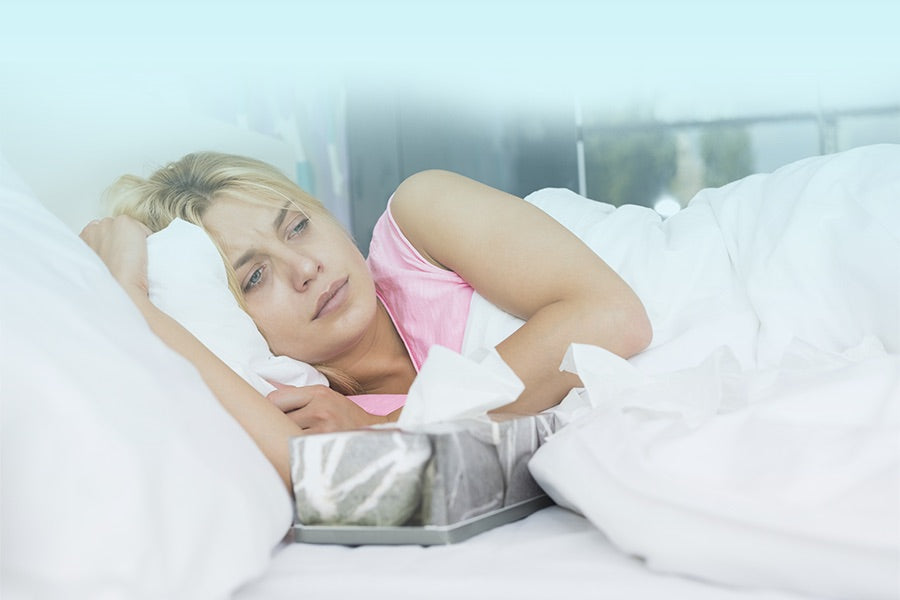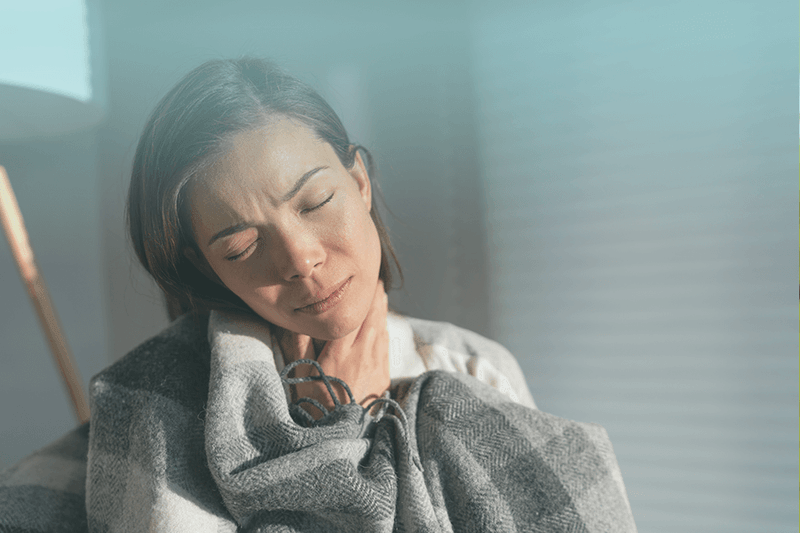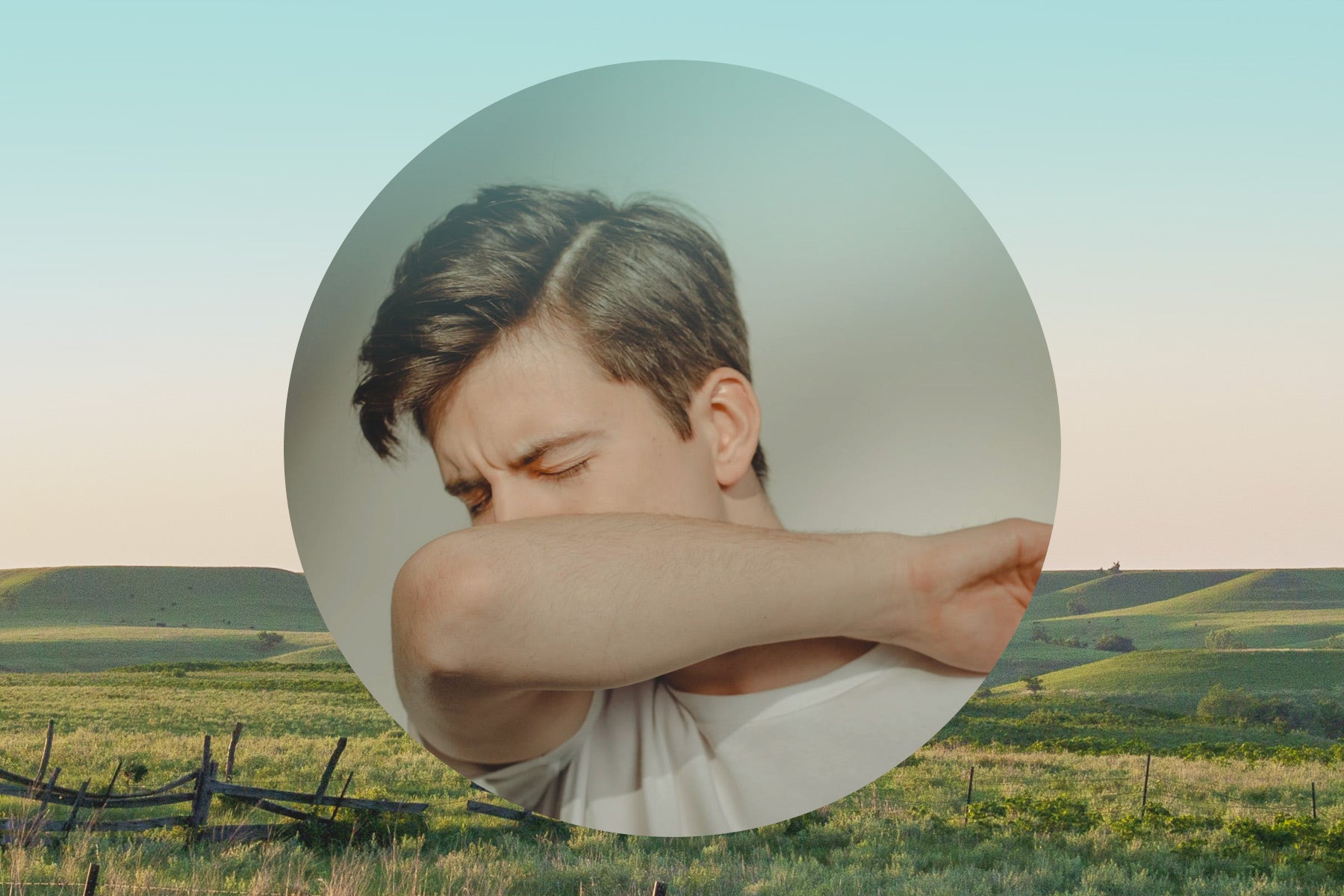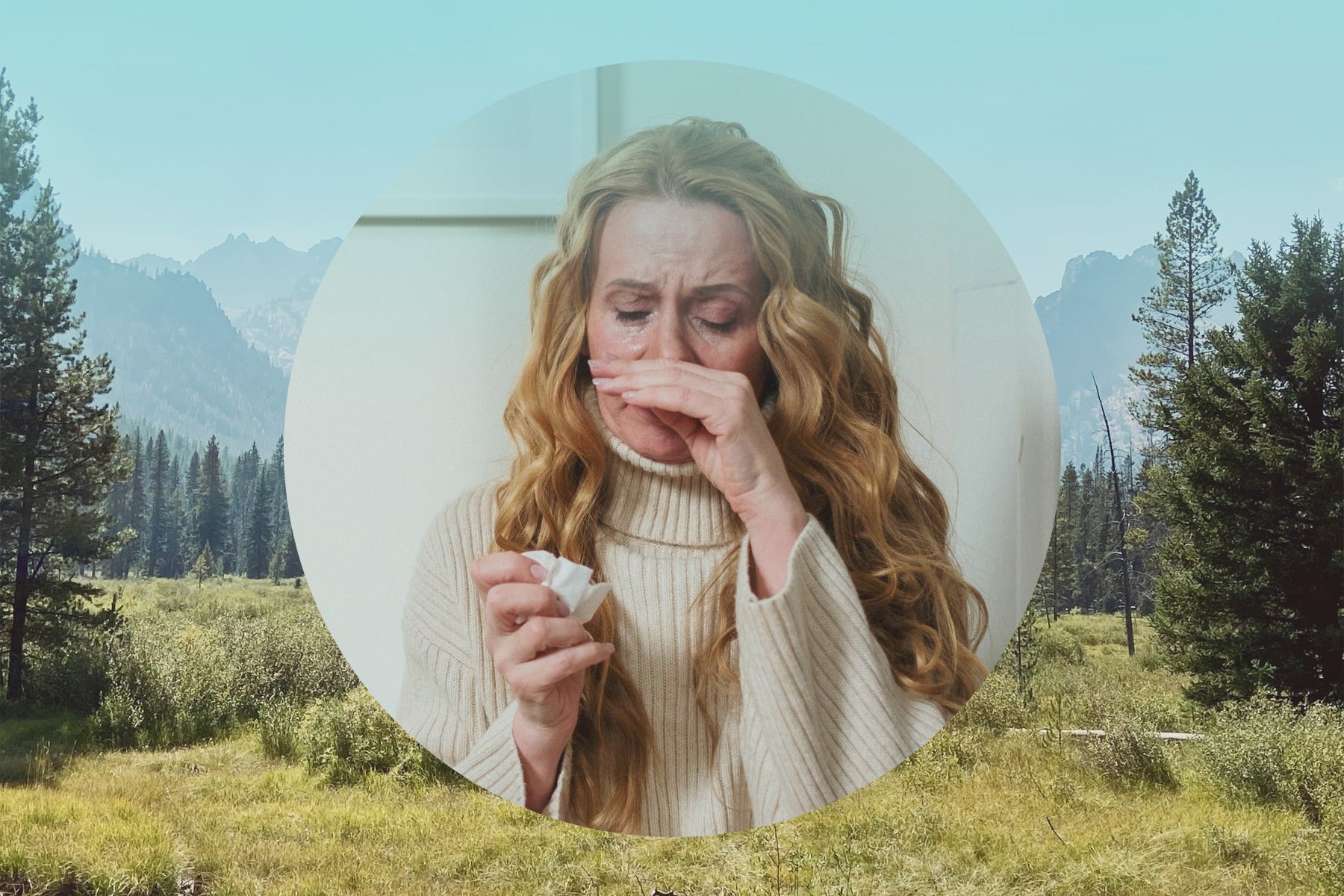
All About Allergy Fatigue
Allergy fatigue is a real thing. We'll discuss everything from what allergy fatigue is, what it feels like, how to treat it, and more!
Can allergies make you tired? Yes, allergies do cause fatigue!
Allergies can bring about a whirlwind of uncomfortable symptoms that interfere with your day-to-day life. While most of us are familiar with common symptoms like a runny nose, itchy throat, and watery eyes, fatigue isn’t typically a symptom that you would associate with allergies. However, allergies can cause fatigue. The good news is that allergy fatigue is 100% treatable — and we’re here to show you how.
Instead of simply putting up with allergy fatigue, try Quello’s effective and convenient allergy drops. With Quello, you’ll experience long-term relief from all of your allergy symptoms, including fatigue. Keep reading to learn more about allergy fatigue —or, if you’re ready to get started with Quello, connect with us directly!
What Is Allergy Fatigue?
While allergy fatigue can certainly make you feel tired, it doesn’t always present itself as sleepiness. Other telltale signs of allergy fatigue are lethargy, drowsiness, or “brain fog” (lack of focus and mental clarity).
How Do Allergies Cause Fatigue?
Most of the factors that cause allergy fatigue are related to the body's immune response to allergens.
When your immune system reacts to allergens, it releases a chemical called histamine. While histamine can cause inflammation and irritation that bring on annoying allergy symptoms, it can also cause feelings of fatigue.
Another way that allergies can cause fatigue comes from your immune system working overtime to fight off those allergens. Additionally, allergies can disrupt sleep due to congestion and breathing issues, leading to feelings of exhaustion throughout the day.
Overall, allergy fatigue results from your body having to work harder to fight off those allergens. Just like when you are sick, your body needs more time to rest, and if you’re not allowing yourself to rest or pursuing proper treatment, your body will have to work harder. The sooner you treat your symptoms, the more likely you are to find relief from fatigue.
What Does Allergy Fatigue Feel Like?
Allergy fatigue is commonly described as a feeling of exhaustion that cannot be improved by rest or more sleep. This exhaustion can affect a person's ability to go about their daily activities, therefore harming their overall quality of life.
Some people with allergy fatigue report feeling like they have a heavy weight on their body, while others have described overall feelings of being unmotivated and lazy. No matter how your fatigue is presenting, it’s important to understand the symptoms so that you can seek out proper treatment.
The symptoms of allergy fatigue vary from person to person, but may include:
- Feelings of exhaustion or weakness
- Brain fog or difficulty concentrating
- Lethargy or lack of motivation
- Headaches or dizziness
- Muscle aches or soreness
- Mood changes, such as irritability or depression
- Trouble sleeping
- Waking up feeling tired
How to Prevent Allergy Fatigue
While allergy fatigue may present itself differently for each individual, there are still steps you can take to prevent it! Let’s walk through some of the keys to preventing allergy fatigue.
Determine What Is Causing Your Allergies
The first and most important step in preventing allergy fatigue is to determine what’s causing your allergy symptoms to flare up. While you may already know what’s triggering your allergies, an ENT specialist can help determine exactly what is going on and look for underlying causes, such as sinusitis or a deviated septum. Some of the most common allergy triggers are dust mites, mold, pet dander, and pollen.
Limit Your Exposure
Once you’ve determined what is causing your allergy flares, you’ll want to limit the amount of exposure that you have to the problematic allergens. This won’t completely eliminate your allergy fatigue, but it should make it more manageable!

Here are some easy things you can do to help limit your exposure:
- Regularly clean your home and include tasks such as:
- Vacuuming
- Dusting
- Routinely changing air filters
- Wash your sheets/bedding
- Wash or update your pillows and pillowcases
- Purchasing an air filter for your bedroom
- Control indoor mold
- Other helpful tips
- Keep windows and doors closed.
- Wear gloves and protective clothing when gardening.
- Wash clothes in hot water after exposure to the allergen.
- Avoid pet dander.
- Avoid drying clothes outdoors.
- Stop smoking.
Checking the pollen count each day and doing your best to avoid unnecessary time spent outdoors during these days can also help. It might not be the entire solution, but limiting your exposure to your allergy triggers is a great start.
Choose Non-Drowsy Medication
Though it might sound counterintuitive, it’s important to keep in mind that certain allergy medications can actually worsen your fatigue symptoms!
Antihistamines and decongestants are common over-the-counter allergy medications that sometimes cause drowsiness. Medications like Benadryl are notoriously known to make you drowsy and should be avoided when looking to combat fatigue. If you are looking for an over-the-counter medication, keep an eye out for the “non-drowsy” label. Be sure to read the label carefully and consult with a doctor if you aren’t confident about a certain medication.
How to Treat Allergy Fatigue
Short-Term Treatments
If you’re someone who has recently started experiencing allergy fatigue symptoms, these short-term treatments can help make your fatigue more manageable. Popular treatment methods include:
- Neti Pots
- Over-the-counter, “non-drowsy” allergy medication
- Other allergy medications that include:
- Eye drops
- Oral sprays
- Nose sprays
Short-term options, when overused, can actually become less effective. If you’re using these types of treatments and still aren’t seeing any improvement in your allergy symptoms, it may be time to consider seeing a doctor and looking at long-term treatment options.
Long-Term Treatments
Whether you’re needing strong allergy treatment or the short-term methods you tried previously are losing their potency, these long-term treatments are going to be the best way to combat allergy fatigue. Immunotherapy treatment options include:
- Allergy drops
- Allergy shots
- Any other treatments recommended by your ENT
Allergy Drops
Allergy drops, also known as sublingual immunotherapy, are a form of treatment for allergies that involve administering small doses of allergens under the tongue. This therapy has been shown to have several benefits, including reducing the frequency and severity of allergy symptoms such as sneezing, itching, and congestion.
Unlike traditional allergy shots, allergy drops can be taken at home, which saves time and money. Additionally, allergy drops are a safe and effective alternative for individuals who cannot tolerate allergy shots or prefer a different treatment approach due to a fear of needles. Overall, allergy drops offer a convenient and research-backed way to manage your allergies and improve your quality of life.

Allergy Shots
Allergy shots, also known as allergen immunotherapy, are another form of treatment for allergies that involve administering increasing doses of allergens over time to build up immunity. Like allergy drops, allergy shots have been shown to reduce the frequency and severity of allergy symptoms such as sneezing, itching, and congestion. They can also prevent the development of new allergies and decrease the risk of asthma.
Allergy shots are effective in treating allergic rhinitis, allergic conjunctivitis, and insect venom allergies. They can also improve quality of life, reduce medication use, and decrease the need for emergency care. Though allergy shots require a greater time commitment and in-person testing, they are a long-term solution that can provide lasting relief for allergy sufferers.
Tips for Sleeping With Allergies
Long-term allergy treatment is the most effective way to help you sleep soundly with allergies. However, there are some things you can do right away to help improve your overall quality of sleep. Along with keeping your bedroom clean, routinely vacuuming, and dusting, here are some other helpful tips:
- Take a shower before bed to remove any allergens from your skin and hair.
- Consider using a humidifier to keep the air in your bedroom moist, which can help soothe irritated nasal passages.
- Sleep with your head slightly elevated.
- Wash your bedding with hot water.
- Avoid letting your pets sleep on the bed, if you struggle with pet dander.

Sleep Soundly With Quello
Allergy fatigue is a real and intense symptom that can seriously impact your life. Both fatigue and sleep deprivation can be harmful to your mental health and should be taken seriously. Thankfully, there’s a great way to overcome your allergy symptoms from home: Quello allergy drops.
Quello offers personalized allergy drops that are tailored to your specific allergy triggers, providing an effective way to manage allergies and improve sleep. Quello drops are easy to use, safe, and can be taken from the comfort of your own home.
{{cta-get-test-kit="/styleguide"}}
Overcome your allergies at home with our doctor-led therapy.
Get started with our free allergy test kitGet Started with no test needed.
Overcome your allergies at home with our doctor-led therapy.
Get started with our free allergy test kitGet Started with no test needed.



